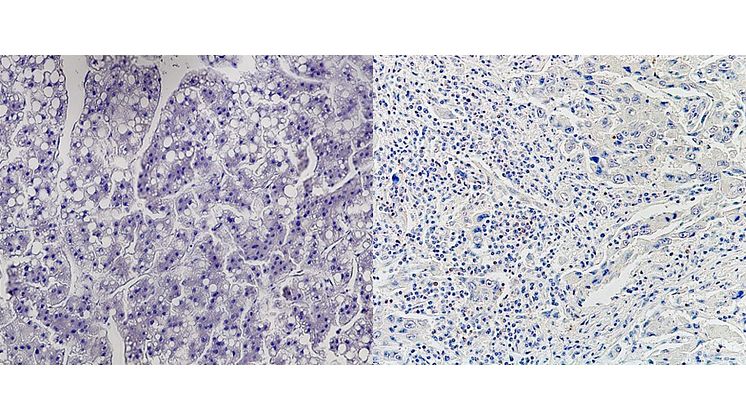
Press release -
World’s First! Predicting the effectiveness of Immune Checkpoint Inhibitor. Expected to establish a personalized medical therapy for liver cancer -- Kindai University
A research team lead by Prof. Naoshi Nishida and Prof./Chairman Masatoshi Kudo of Kindai University (Osaka Sayama city) Faculty of Medicine (Department of Gastroenterology and Hepatology) has successfully established a scoring system for predicting the effectiveness of immune checkpoint inhibitors (ICIs) in a treatment of liver cancer (hepatocellular carcinoma, HCC).
Treatments centered on molecular-targeted drugs and immune checkpoint inhibitors have been used to treat patients with HCC; however, it was not easy to predict the effect of ICI-based treatment. The findings of this research will help select effective agent for each individual in advance of treatment, which will contribute to a personalized medicine.
This research was published online in the “Liver Cancer”, a medical journal publishing studies in the field of gastroenterology and oncology, on Thursday, June 10, 2021.
1. Key points
- Predicted effectiveness of immune checkpoint inhibitors (ICIs) using a scoring system related to anti-cancer immune conditions
- Examined patients with liver cancers by dividing them into 3 groups according to the score. Verified that the group with the best response to treatment had up to 4 times longer in the progression-free survival compared to the group with the worst response.
- Expected for new treatment methods using effective case prediction with immune checkpoint inhibitors (ICIs)
2. Overview
The research group analyzed cancers for 34 patients who received immune checkpoint inhibitor (anti-PD-1 antibody) aiming to predict the effect of the therapeutic agent in liver cancer therapy. The result indicated when cancer tissues include more lymphocytes and abundant immune checkpoint molecules are expressed, they show a good response to immune checkpoint inhibitors (ICIs). While on the contrary, in cancers that activate signals that interfere with lymphocyte-mediated immune response (β-catenin signal), immune checkpoint inhibitors may be less effective.
For patients with liver cancer, expression of immune checkpoint molecules, tumor- infiltrating lymphocyte, and β-catenin activation were examined. The patients were divided into 3 groups: zero positive prognostic factor; one prognostic factor; and two or more prognostic factors.
The number of days (progression-free survival) after the start of treatment with ICIs until the tumor grows again was 271.5 days in the longest group and 55 days in the shortest group. The difference was verified to be more than four times.
The findings of this research will lead to novel ways to predict effective cases and select suitable patients for liver cancer treatment with ICIs.

3. About publication
Journal name: Liver Cancer (Impact factor: 11.740@2020)
Research paper title: Immunological microenvironment predicts the survival of the patients with hepatocellular carcinoma treated with anti-PD-1 antibody
